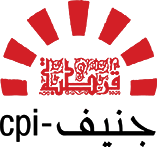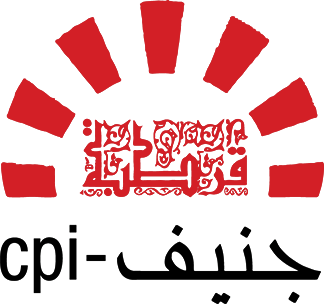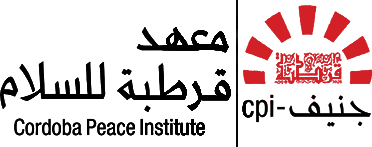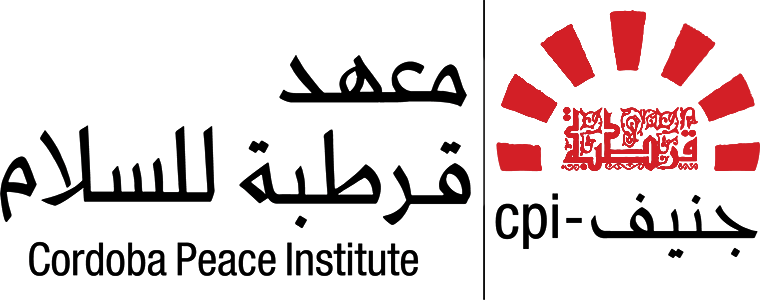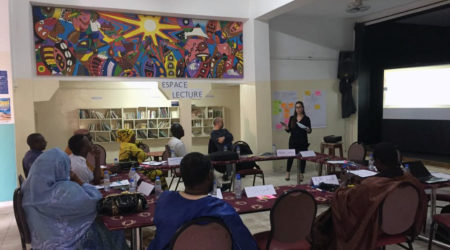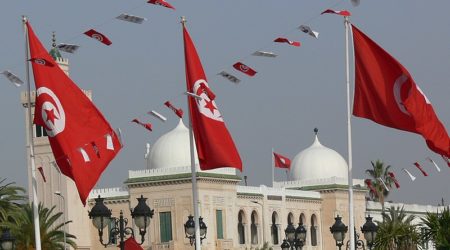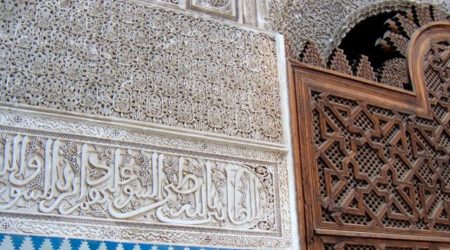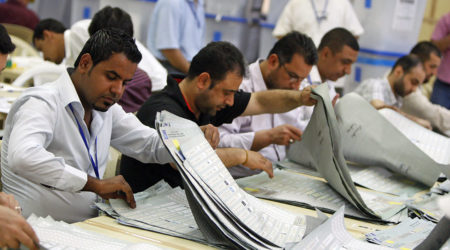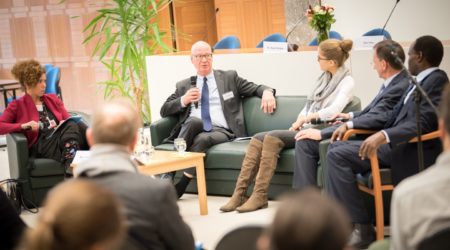Mauritanian Constitutional Referendum: Polarised Campaign and the Emergence of New Fault Lines

by Abdoulaye Bâ
On August 5, 2017, the Mauritanians went to the polls to vote on constitutional amendments proposed by the government. This consultation had been strongly rejected by the Mauritanian Senate, which put the government in a minority by refusing to endorse the proposal of the executive, opening a significant crisis within the ruling majority.
by Abdoulaye Bâ
On August 5, 2017, the Mauritanians went to the polls to vote on constitutional amendments proposed by the government. This consultation had been strongly rejected by the Mauritanian Senate, which put the government in a minority by refusing to endorse the proposal of the executive, opening a significant crisis within the ruling majority.
The so-called radical opposition, organized around the group commonly known as the « G8 », followed suit, advocating a boycott of the ballot, which it considered illegal, and accusing the executive of overriding the Senate vote. According to this group, the vote of the Senate (in March) should have resulted in the simple cancellation of the bill, in accordance with articles 99, 100 and 101 of the Constitution (adopted in 1991 and amended in 2006)1 relating specifically to constitutional amendments. These articles stipulate that the approval of two-thirds of the Assembly is required, as well as two-thirds of the Senate, to validate amendments to the Republic’s basic text. In addition, article 101 states that “a draft revision shall not be submitted to referendum when the President of the Republic decides to submit it to the Parliament convened in Congress …”. 2
Relying on “the opinion of reputable constitutionalists”, the Government had appealed to Article 38 of the Constitution to justify its approach. This article gives the President of the Republic the possibility of recourse to a referendum to decide on matters of “national importance”.
This resulted in a showdown between the Government and the senators, who were previously regarded as government supporters and who are, for the most part, members of the ruling Union pour la République Party (UPR). And for good reason: one of the clauses of the proposed revision includes the abolition of the Senate, in addition to that of the High Court of Justice. It also proposes a modification of the country’s flag and “improvements” to the national anthem, the words of which, written in 1924 by a Sufi scholar, are considered too religious and lacking in patriotic sentiment.
Finding themselves in an alliance of circumstance with senators fighting against their own side, the radical opposition has shown a certain cohesion, even if one of its parties, the Convergence Démocratique (CD) decided to take part in the ballot, unlike all other members, who adopted the boycott.
This has been followed by a very polarized campaign, with verbal attacks bordering on public insult and slander from both sides. Symbols that had up until then embodied a consensus within society have been denigrated, and this has led to the establishment of armed vigils tinged strongly with tribalism and regionalism between the protagonists. In this context, words attributed to certain people in power, such as the mayor of Zouérate, a retired former senior officer and close friend of President Aziz, concerning the author of the national anthem, Sheikh Baba Ould Cheikh Sidiya, have aroused great controversy.3 Worse still, they have caused new fractures which have aggravated the deep political crisis that has torn apart the country since the coup d’état in August 2008. Moreover, local public opinion perceived very badly a statement by the president of the ruling UPR party: in a public meeting, Sidi Mohamed Ould Maham allegedly gave President Aziz “attributes reserved to Allah”, by paraphrasing a Qur’anic verse stating that he (Aziz) “feeds the hungry and reassures the frightened”.4
The opposition, who organized protests which were frequently banned and repressed, have criticized President Ould Abdel Aziz and his regime directly and without restraint.5 On several occasions, certain opposition leaders have made public personal attacks against the President and his family. These words, described as “filthy,” have been denounced by the partisans of the ruling power.6
The referendum did not arouse much the enthusiasm among Mauritanians. Despite strong public mobilization carried out by the authorities, with President Aziz in the lead, voters seem, for the most part, to have deserted the ballot box. In the view of observers, not many went to vote, particularly in the large urban centres, notably Nouakchott. On the other hand, there was greater affluence in the hinterland, and especially in the countryside.7
According to the announcement of the results, the “yes” vote prevailed by more than 85%. The main issue at stake in this consultation was the participation rate, and the Independent National Electoral Commission CENI reported a rate of 53.75%.8 This figure was strongly contested by the opposition, who denounced massive electoral fraud characterized by the stuffing of ballot boxes by the administration and the ruling party. They also cried foul concerning the manipulation of the figures by the CENI. According to the G8, the electoral commission grossly overestimated participation due to pressure from the ruling power. The seven members of the electoral commission unanimously rejected these accusations.
Another issue at stake in this poll was the question of the third mandate that President Aziz would like to run for in 2019, contrary to the provisions of the current Constitution. On leaving the polling station where he had fulfilled his duty as a citizen, Mohamed Ould Abdel Aziz clearly reaffirmed that he would not seek a third term. “The revision of the Constitution is not meant to allow me to present myself for a third term as the opposition claims,” he said, “but we will amend certain articles of this Constitution with the aim of improving it, without touching presidential prerogatives. This constitutional improvement could take from two to five years, or even ten years,” 9 he said.
Immediately after the ballot, several senators and the radical opposition rejected the results. According to them, this election would have no legal consequence for the life of the country. The flag, the national anthem and the dissolved institutions remain in force. They have promised to continue their action of “resistance against the serious dictatorial drift that the regime is taking” and the defence of democracy and the legal institutions10.
In reaction, the ruling power quickly started implementing the results of the referendum, closing the Senate premises, withdrawing the diplomatic passports of senators and adopting bills to endorse changes to the flag, the national anthem and the transfer to the National Assembly of the powers devolved to the “dissolved” Senate.11
In an attempt to gain victory in the stalemate, the leader of the opposition in the Senate, Mohamed Ould Ghadda, was arrested on 11 August and imprisoned by the Economic Crimes Brigade.12 Facing as yet unspecified charges, he is in police custody and has not yet been brought before a judge, two weeks after his arrest. According to his lawyer, he is reproached for colluding with a businessman exiled in Morocco, Mohamed Ould Bouamatou. The latter is accused of bribing senators with millions of UM to convince them to vote against the constitutional amendments, causing his enemy President Aziz trouble with the members of his own camp.
Eleven other former senators, two trade unionists, five journalists and a former non-commissioned officer were also arrested and questioned about their alleged links with businessman Ould Bouamatou.13 They were mostly released after hours of interrogation, except for Senator Ould Ghadda and the non-commissioned officer, who were imprisoned. All other members of this group have been placed under judicial control pending trial. An international arrest warrant was issued against businessman Ould Bouamatou and his business manager. These measures have raised tensions. Civil society associations, political parties and external partners of Mauritania, such as Germany, have expressed serious concerns about the situation.
As can be seen, the referendum of 5 August has far from calmed the situation in Mauritania. It has even exacerbated divisions between political actors and has given rise to new political, community and even religious lines of tension.
(*) For more information on the Sahel Program, please contact Abdoulaye Bâ (abdoulaye.ba@cordoue.ch) or Sarah Franck (sarah.franck@cordoue.ch)
_________________________
1 http://www.la-constitution-en-afrique.org/article-12871105.html
2 http://cridem.org/C_Info.php?article=696370
3 http://cridem.org/C_Info.php?article=700812
4 http://adrar-info.net/?p=41288
5 http://www.lemonde.fr/afrique/article/2015/04/24/en-mauritanie-l-opposition-tire-a-boulets-rouges-sur-le-pouvoir_4622346_3212.html
6 https://lesmauritanies.com/2017/07/27/revelations-rocambolesques-du-senateur-ould-ghadda/
7 http://afrique.le360.ma/mauritanie/politique/2017/07/06/13182-mauritanie-un-5-aout-entre-referendum-et-journee-ville-morte-13182
8 http://www.ceni.mr/
http://fr.ami.mr/Depeche-41802.htm
http://www.jeuneafrique.com/464117/politique/mauritanie-nette-victoire-pour-le-oui-au-referendum-constitutionnel/
9 http://www.rfi.fr/afrique/20170806-referendum-mauritanie-spectre-3e-mandat-abdel-aziz-domine-campagne
10 http://aa.com.tr/fr/afrique/mauritanie-la-coalition-de-l-opposition-qualifie-de-choquants-les-r%C3%A9sultats-du-r%C3%A9f%C3%A9rendum/879482
http://www.rfi.fr/afrique/20170808-mauritanie-referendum-constitutionnel-rejet-resultats-senateurs-sidi-nemine
11 http://cridem.org/C_InfoConCat.php?articl=101&tt_news_cat=66
12 https://lesmauritanies.com/2017/08/11/mauritanie-nouvelle-arrestation-du-senateur-ould-ghadda/
http://www.pointschauds.info/fr/2017/07/11/mauritanie-le-parquet-se-prononce-sur-larrestation-du-senateur-ould-ghadda/
http://www.lestracesdelinfo.com/2017/08/21/mauritanie-fndu-larrestation-de-ould-ghadda-demontre-une-crise-du-pouvoir/
13 http://rimweb.net/affaire-ould-ghadda-apres-les-journalistes-des-syndicalistes-sont-entendus/
https://fr-fr.facebook.com/cridem.org/posts/1390185604390600
http://www.cridem.org/index.php?id=82&no_cache=1&tx_ttnews%5Btt_news%5D=17977&tx_ttnews%5BbackPid%5D=36&cHash=fc52b66057
http://www.slateafrique.com/774369/rdc-rsf-deplore-la-vague-darrestations-de-journalistes-lundi
